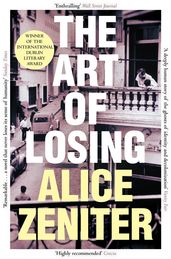Synopsis
Winner of the International Dublin Literary Award
'Remarkable . . . a novel about people that never loses its sense of humanity' – The Sunday Times
'Zeniter’s extraordinary achievement is to transform a complicated conflict into a compelling family chronicle.' – The Wall Street Journal
Naïma has always known that her father's family were from Algeria – but up until now, that has meant very little to her. Born and raised in France, her knowledge of that foreign country is limited to what she has learned from her grand parents' tiny flat in a crumbling French sink estate: the food cooked for her, the few precious things they brought with them when they fled.
On the past, her family is silent. Why was her grandfather Ali forced to leave? Naïma’s father, Hamid, claims to remember nothing. Now, Naïma will see Algeria for herself, will ask the questions about her family’s history that, until now, have had no answers.
Spanning three generations across seventy years, The Art of Losing tells the story of how people carry on in the face of loss – the loss of a country, an identity, a way to speak to your children – a story of colonization and immigration, and how we are a product of the things we have left behind.
Translated from the French by Frank Wynne
This book is supported by the Institut français (Royaume-Uni) as part of the Burgess programme.
Details
Reviews
With its panoramic vision and generous spirit, The Art of Losing finds shoots of hope amid the stony landscapes of the past.
Remarkable . . . Because it deals with immigration, nationalism and Islam, it speaks urgently to our time . . . a novel about people that never loses its sense of humanity.
Visceral . . . An incredible [book] . . . that requires rapt attention. It is a novel that scales the walls of history and excavates lessons with curiosity and anger.
This pacy, complex piece of historical fiction (which was nominated for France’s most prestigious literary award, the Prix Goncourt) explores the tangled reality of identity.
